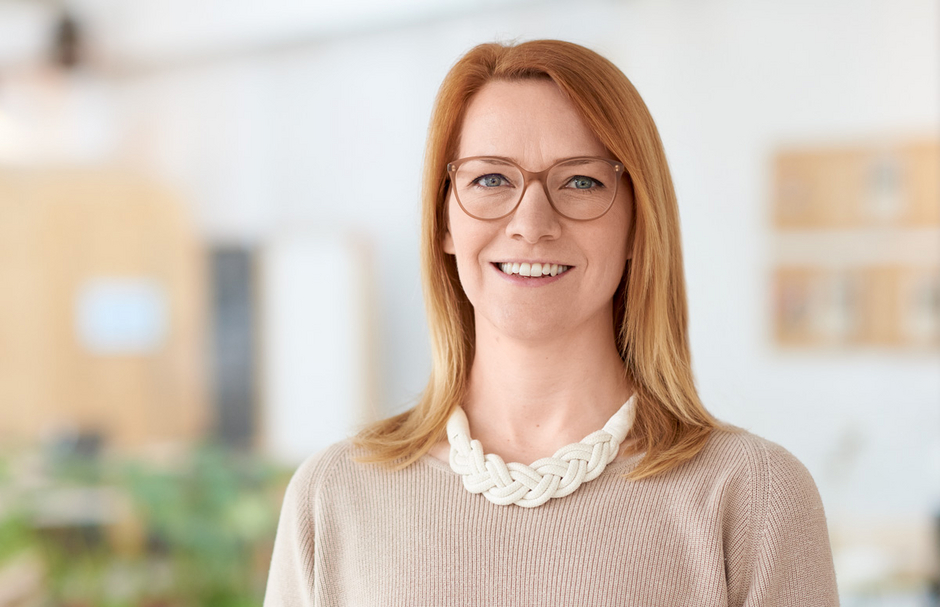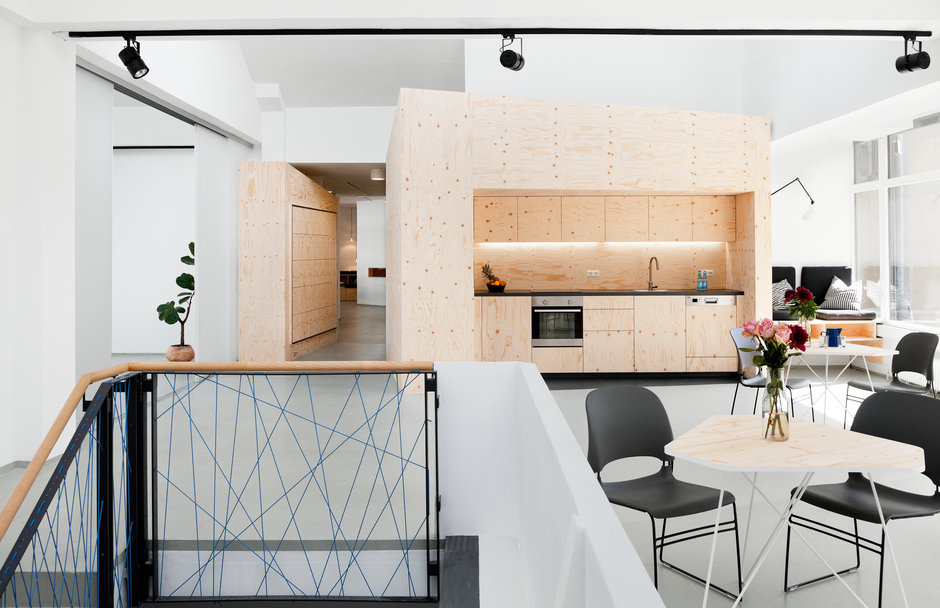Impact Hub Berlin - The home of the next generation of founders
Common problems require common action. Under this principle, HPI D-School alumni Nele Kapretz and Anna Lässer founded the Impact Hub Berlin in 2014. The Impact Hub is a place for exchange between companies and founders who want to make a positive difference with their work. The goal is a future that works for everyone.
In this interview, Managing Director Nele Kapretz tells us how influential the HPI D-School and Design Thinking methods are for her personal development and today’s work. She gives an authentic insight into the history of the Impact Hub Berlin – from its founding to its planned move to a new space in November 2021.
Hi Nele, you and Anna Lässer met during the Basic Track at the HPI D-School. How did the idea for the Impact Hub Berlin come about and to what extent did Design Thinking play a role in the founding process?
Before the Basic Track, I studied Sustainable Resource Management in Munich. There we were always told about the problems and challenges that existed in the world and that we, as “leaders of tomorrow”, have to tackle them. Similar to Einstein’s quote: “You can’t solve a problem with the same thought structures that contributed to its creation.” It overwhelmed me at the time because I didn’t know exactly what another way of thinking was. When I was writing my master’s thesis on Social Entrepreneurship, a friend of mine made me aware of the HPI D-School.
In the Basic Track program I met Anna (note: Lässer) and we got along well from the very first moment. During her time at the HPI D-School, the idea for the Impact Hub came up, but Anna was initially only involved in creating the application video for the team members. When they dropped off the project, we decided very spontaneously to found the Impact Hub together. However that is only possible with three people. Coincidentally, Martin Hobler from Switzerland, who specializes in finance and law, joined us later, as well as Leon Reiner, who had previously helped set up the Social Impact Lab. Therefore, we started as a team of four.
Design Thinking methods have already played a major role in our application for the Impact Hub network, as we designed it to be very user-centred. Through this innovative development of the Berlin Hub, we have set new standards for the application process in the network, which now has more than 100 locations worldwide. The following attempts to open an Impact Hub have failed for two years, which we have transparently shared with our network in a failure report. Then a friend of ours, who rents co-working spaces in Berlin Neukölln, came forward and offered us to develop a prototype for the Impact Hub there for a year. During this time, we found a new property in Friedrichstraße, which we built together with our members in a co-creative process. This whole development took place according to the motto "just do it, try it out and be open to mistakes".
With your work in the field of social entrepreneurship, you are aiming for positive changes for the problems of society as a whole. Which methods and elements are important for proactively shaping the future and promoting social innovation?
We live our three core values: courage, trust and cooperation. Courage is about breaking new ground, making mistakes and trying things out. Trust is about sharing ideas and openness within the team and among all members. And because you can achieve more together, we want to promote mutual help within the teams through cooperation.
In addition, there are different working modes in the Impact Hub. You can work quietly, make phone calls, get a whiteboard and standing tables, but also have a coffee in between. These different needs are covered by the environment, which allows the space to contribute to creative and networked work. In addition, we always ask ourselves how we can inspire and connect people from other sectors to create an exchange.
You are especially focusing on building a creative and networked community that brings together actors from society, business and politics from around the world. Why do you think global cooperation and collective action are crucial to successfully confronting challenges?
This is particularly important because the problems are very complex and, for example, no single person could solve the climate crisis. That is why we need cooperation from different areas. Especially with so-called "wicked problems", like the climate crisis, it takes many diverse people from science, politics, business and creative fields who not only talk about the problem, but also act. We call this format "unlikely allies".
Last year, for example, we helped set up the federal government's "WirvsVirus" hackathon. The call was for digital and creative solutions for challenges in the Corona pandemic. This format took place entirely online and inspired us to digitize our membership model as well. Now we have events that are digital, but also hybrid. We want to create the same exchange in the virtual environment as in a physical one.
In November 2021, you will open the largest Impact Hub in Europe to date with 3,500 m2 in the Kindl Areal, Berlin-Neukölln. What new possibilities does the new space open up for your work and the entire community?
If we want to normalize social engagement, we need more space for larger teams. Often, groups of more than five people move from the Impact Hub to their own office, and knowledge transfer suffers. In our new coworking space, we want to create the necessary framework for a productive exchange between companies and new founders. This includes, for example, maker labs where people can produce prototypes and work haptically. We are building the new Impact Hub again with the participation of all members, as we had good experiences with our first property. Our members should feel comfortable in their offices and are therefore involved in the creative process from the very beginning.
In the future, we will focus on the four themes of digitalization & sustainability, circular economy, sustainable food supply in cities and diversity & inclusion. We have already been working in these areas over the past few years and have noticed that it is more effective to bring people together on specific topics. We look forward to meeting the need for physical exchange in the aftermath of the pandemic, while at the same time expanding our digital membership. This hybrid structure offers great advantages that we want to use sustainably.
In conclusion, I would like to say again that my career was significantly influenced by my participation in the Basic Track of the HPI D-School and that we incorporate many of the competences I gained there into our work. I am thinking in particular of positive interaction rather than competitive thinking, building on one another and an open culture of failure. In our increasingly agile world, we need more people with this background, which is why I am still very happy that chance brought me to HPI D-School.
Contact Nele Kapretz on LinkedIn.
Photos: Impact Hub Berlin
The interview was conducted by Anna Dotzek and Stefanie Schwerdtfeger.



